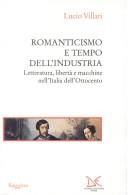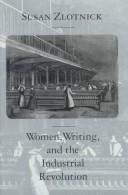| Listing 1 - 8 of 8 |
Sort by
|
Book
ISBN: 1443886572 9781443886574 9781443882187 1443882186 Year: 2015 Publisher: Newcastle upon Tyne Cambridge Scholars Publishing
Abstract | Keywords | Export | Availability | Bookmark
 Loading...
Loading...Choose an application
- Reference Manager
- EndNote
- RefWorks (Direct export to RefWorks)
This book provides a clear historical and theoretical framework for reading three important novels published in Britain in the second half of the nineteenth century. Examining the novels by Charlotte Brontë, Charles Dickens and Elizabeth Gaskell, the book offers an analysis of their strategies for radical reforms and for the restructuring of society and politics through improvements in the living and working conditions of the working class.The Industrial Novels begins with an introduction of the Industrial Revolution, which is then followed by chapters devoted to a detailed discussion of each
Industrial revolution in literature. --- Dickens, Charles, --- Brontë, Charlotte,

ISBN: 8879894609 Year: 1999 Publisher: Roma : Donzelli,
Abstract | Keywords | Export | Availability | Bookmark
 Loading...
Loading...Choose an application
- Reference Manager
- EndNote
- RefWorks (Direct export to RefWorks)
Italian literature --- Liberty in literature. --- Literature and society --- Industrial revolution --- Industrial revolution in literature. --- Romanticism --- History and criticism. --- History --- History.
Book
ISBN: 0226828395 Year: 2023 Publisher: Chicago : University of Chicago Press,
Abstract | Keywords | Export | Availability | Bookmark
 Loading...
Loading...Choose an application
- Reference Manager
- EndNote
- RefWorks (Direct export to RefWorks)
A new literary-cultural history of the Industrial Revolution in Britain from the late eighteenth to the mid-nineteenth centuries. Working against the stubbornly persistent image of "dark satanic mills," in many ways so characteristic of literary Romanticism, Jon Mee provides a fresh, revisionary account of the Industrial Revolution as a story of unintended consequences. In Networks of Improvement, Mee reads a wide range of texts-economic, medical, and more conventionally "literary"-with a focus on their circulation through networks and institutions. Mee shows how a project of enlightened liberal reform articulated in Britain's emerging manufacturing towns led to unexpectedly coercive forms of machine productivity, a pattern that might be seen repeating in the digital technologies of our own time. Instead of treating the Industrial Revolution as Romanticism's "other," Mee shows how writing, practices, and institutions emanating from these industrial towns developed a new kind of knowledge economy, one where local literary and philosophical societies served as important transmission hubs for the circulation of knowledge.
Book
ISBN: 9780823282111 9780823282128 Year: 2019 Publisher: New York Fordham University Press
Abstract | Keywords | Export | Availability | Bookmark
 Loading...
Loading...Choose an application
- Reference Manager
- EndNote
- RefWorks (Direct export to RefWorks)
English literature --- Ecocriticism --- Ecology in literature --- Environmentalism in literature --- Industrialization in literature --- Ecological literary criticism --- Environmental literary criticism --- Criticism --- History and criticism --- Ecology in literature. --- Industrial revolution in literature. --- History and criticism.

ISBN: 0801858291 Year: 1998 Publisher: Baltimore, Md. : Johns Hopkins University Press,
Abstract | Keywords | Export | Availability | Bookmark
 Loading...
Loading...Choose an application
- Reference Manager
- EndNote
- RefWorks (Direct export to RefWorks)
English literature --- Industrial revolution in literature --- Women and literature --- Industrial revolution --- Littérature anglaise --- Révolution industrielle dans la littérature --- Femmes et littérature --- Révolution industrielle --- Women authors --- History and criticism --- History --- Femmes écrivains --- Histoire et critique --- Histoire --- Industrial revolution in literature. --- Industries --- Literature and technology --- History and criticism. --- Literary collections. --- History. --- Littérature anglaise --- Révolution industrielle dans la littérature --- Femmes et littérature --- Révolution industrielle --- Femmes écrivains --- Industrial economics --- Literature --- Sociology of work --- Fiction --- Thematology --- Trollope, Frances --- anno 1800-1899 --- anno 1700-1799 --- Great Britain --- Brontë, Charlotte --- Gaskell, Elizabeth --- Forester, Fanny --- Johnston, Ellen --- Tonna, Charlotte Elizabeth --- Industrialisation --- Working class --- Working-class women --- Poetry --- Writers --- Book
Book
ISBN: 0823282139 0823282147 0823282120 0823286037 0823282112 Year: 2019 Publisher: New York, New York : Fordham University Press,
Abstract | Keywords | Export | Availability | Bookmark
 Loading...
Loading...Choose an application
- Reference Manager
- EndNote
- RefWorks (Direct export to RefWorks)
Ecological Form brings together leading voices in nineteenth-century ecocriticism to suture the lingering divide between postcolonial and ecocritical approaches. Together, these essays show how Victorian thinkers used aesthetic form to engage problems of system, interconnection, and dispossession that remain our own. The authors reconsider Victorian literary structures in light of environmental catastrophe; coordinate “natural” questions with sociopolitical ones; and underscore the category of form as a means for generating environmental—and therefore political—knowledge. Moving from the elegy and the industrial novel to the utopian romance, the scientific treatise, and beyond, Ecological Form demonstrates how nineteenth-century thinkers conceptualized the circuits of extraction and violence linking Britain to its global network. Yet the book’s most pressing argument is that this past thought can be a resource for reimagining the present.
Ecocriticism. --- English literature --- Industrialization in literature. --- Environmentalism in literature. --- Ecology in literature. --- British literature --- Inklings (Group of writers) --- Nonsense Club (Group of writers) --- Order of the Fancy (Group of writers) --- Ecological literary criticism --- Environmental literary criticism --- Criticism --- History and criticsm. --- Industrial revolution in literature. --- History and criticism
Book
ISBN: 9782600012195 2600012192 Year: 2008 Volume: 444 Publisher: Genève : Droz,
Abstract | Keywords | Export | Availability | Bookmark
 Loading...
Loading...Choose an application
- Reference Manager
- EndNote
- RefWorks (Direct export to RefWorks)
Science in literature. --- Industries in literature. --- Industrial revolution in literature. --- Literature and science --- Literature and technology --- French literature --- Sciences dans la littérature --- Industrie dans la littérature --- Révolution industrielle dans la littérature --- Littérature et sciences --- Littérature et technologie --- Littérature française --- History --- History and criticism. --- Histoire --- Histoire et critique --- Du Camp, Maxime, --- Sciences dans la littérature --- Industrie dans la littérature --- Révolution industrielle dans la littérature --- Littérature et sciences --- Littérature et technologie --- Littérature française
Book
ISBN: 9783770555703 3770555708 3846755702 9783846755709 Year: 2013 Publisher: München : Wilhelm Fink,
Abstract | Keywords | Export | Availability | Bookmark
 Loading...
Loading...Choose an application
- Reference Manager
- EndNote
- RefWorks (Direct export to RefWorks)
Heinrich Heine ist in den 1830er und 40er Jahren der erste und einzige deutsche Schriftsteller, der als Zeit- und Augenzeuge der politischen und industriell-technischen Doppelrevolution sein poetisch-essayistisch-kritisches Werk ganz der Erkundung der Signatur dieses Zeitalters widmet. Zunächst zeigt Großklaus, wie Heine die Bruchlinien des Fortschrittsprozesses deutlich nachzeichnet und inwiefern dies mit der choc-haften Innenwahrnehmung eines Zusammenbruchs der vertrauten raumzeitlichen Ordnung einhergeht. Der Einbruch der neuen »Bewegungsmaschinen« und des neuen technischen Bild- Mediums stellt dem politischen und gesellschaftlich-kulturellen Wandel des Weiteren eine neue poetische, chronotopologische Technik, eine ›materiale‹ technische Geschichte fortschreitender Verfügung über Raum, Zeit und Natur zur Seite. An die aus zerstörerischen Geschichtsprozessen rührenden Verlustängste ist für Heine stets die Klage über die Unerlöstheit des sexuellen Körpers geknüpft, sodass er schließlich als unerklärtes Mitglied einer nie formierten antiklassischen Avantgarde der Grenzgänger und Exilanten zu sehen ist, in deren universalistischem Geist er ein ambivalentes Bild einer globalen Moderne in ihrem Frühstadium zeichnet.
Révolution industrielle --- Dans la littérature. --- Heine, Heinrich --- Industrial revolution in literature. --- Heine, Heinrich, --- Geĭne, Genrikh, --- Khaĭne, Khaĭnrikh, --- Haine, --- Chaine, Herrikos, --- Hai-nieh, --- Heine, Enrique, --- Heine, H. --- Haineh, Henrikh, --- Haineh, Hainrikh, --- Hainah, Hinrikh, --- Haine, H., --- Heine, Henri, --- Heine, Henryk, --- Heine, Enrico, --- Haine, Hainrix, --- Haine, Hainrikh, --- Heine, Henry, --- Heine, Harry, --- היין, היינריך, --- היינה --- היינה, היינריך --- היינה, היינריך, --- היינה, הינריך --- היינע, היינריך --- היינע, היינריך, --- היינריך, היינה, --- הינה, הינריך --- הינה, הינריך, --- הײנע, הײנע --- הײנע, הײנריך --- הײנע, הײנריך, --- Гейне, Генрихъ, --- Political and social views. --- Knowledge --- History. --- Erzählung --- Geschichte --- Kritik --- Literatur --- Literaturwissenschaft --- Prosa --- Roman --- Prosaautoren
| Listing 1 - 8 of 8 |
Sort by
|

 Search
Search Feedback
Feedback About UniCat
About UniCat  Help
Help News
News